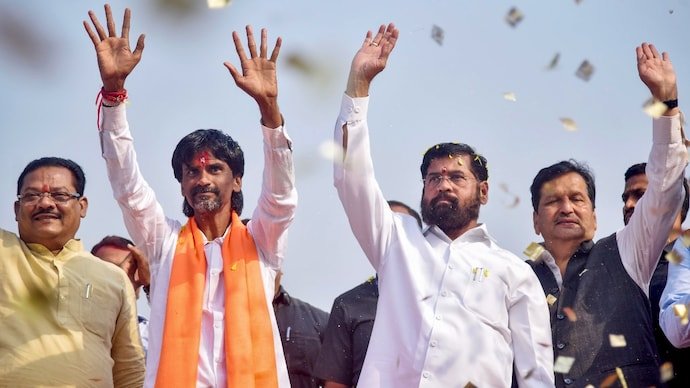The Maratha Reservation Bill, which grants the community a 10% reservation in government jobs and education, was approved by the Maharashtra Assembly on Tuesday. Shortly after Chief Minister Eknath Shinde tabled it at the extraordinary Assembly session, it was passed.
The Maharashtra State Socially and Educationally Backward Bill 2024 was approved by all parties; the Nationalist Congress Party‘s minister Chhagan Bhujbal was the only one to oppose the legislation. Bhujbal has been against the OBC quota’s Maratha reservation.
The Chief Minister will now table the bill in the Legislative Council for assent, after which it will become a law.
Manoj Jarange-Patil, a Maratha reservation activist, was given assurances on February 17 by Shinde and deputy Chief Minister Devendra Fadnavis that a special session of the Assembly will be convened on February 20 to finalize the procedures necessary to provide quota to the community.
The announcement came on the same day when Jarange-Patil’s indefinite fast in response to the Maratha reservation dispute entered its 7th day.
However, the activist referred to the bill’s passing as a “betrayal to the Maratha community”. According to Patil, the quota cannot be split and must fall under the Other Backward Classes (OBC) category.
“The government made this choice with the upcoming elections and votes in mind. The Maratha community is being betrayed by this, he told the news agency ANI.
“The Maratha people are not going to trust you. We shall only gain from our initial requests. This reservation cannot be honored. The government will now lie and claim that the reserve has been granted,” he stated.
The administration received a report last week from the Maratha Reservation and State Backward Classes Commission. According to the survey, there was a lower proportion of people in the Maratha community—which made up 28% of the state’s overall population—who finished secondary school and went on to pursue post-graduation and professional education.
It claimed that the largest impediment to schooling in the community was its economic backwardness.














